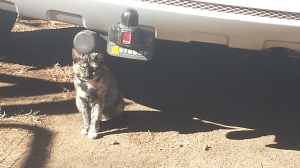“You cannot say, or guess, for you know only
A heap of broken images, where the sun beats,
And the dead tree gives no shelter, the cricket no relief,
And the dry stone no sound of water.”
This will be my last post on this blog. It’s going to be filled with real talk, and will probably be less logical (and more personal) than I want it to be. It’s a rough draft of bigger ideas and burning memories. You’ve been warned.
Throughout this summer I’ve been able to go on some amazing weekend trips all over KwaZulu Natal. It’s been a luxury and I’ve had some adventures I’ll never forget. Last weekend, I was barricaded in Tugela Ferry. The community went on strike.
Water and power shortages have plagued the area for a few weeks, and many of the outlying villages have reached their wit’s end. Combine no water with a lot of very sick people, and you get a recipe for death—even above the usual “death is around every corner” or “life is crazy” threshold I’ve gotten used to. There’s a one lane bridge over the Tugela River. Strikers put boulders, bricks, tree branches, anything they can find on the only roads in and out of the town. They marched down the streets and closed down the local stores.
Monday morning came and nothing changed. There’s still no water; the roads were cleared. Life goes on. Life always goes on. I went to the store and bought a half gallon of milk and that night I had a hot shower behind the barbed wire fence that protects the hospital. As I showered I almost forgot that this water might be better used for a dying person. Should I feel guilty? I don’t know. I didn’t stop showering.
Things are rough here, but not that rough. South Africa is a middle-income country, and there are enough roads, hot water, cell phones, and Coca Cola signs even in Tugela Ferry for me to have lived quite comfortably. After getting internet and power back I read up on Gaza and Israel, plane crashes left and right, and Ebola doctors dying. Hey, at least here people are organized and civilized enough to go on a strike; it’s not a war zone. At least here, there’s a hospital, not the burnt up remnants of bombed medical facilities. Living here has made me appreciate New Haven, and hearing about Congolese refugee camps has made me appreciate Tugela Ferry. It’s all relative. I’m struggling to balance gratitude and discomfort; I have no idea how to contextualize my experiences.
I suppose that means it’s time for one last attempt to paint a picture with words.
At the bottom of South Africa there is a place called Cape Agulhas where the Indian and Atlantic Oceans meet. It’s a line in the water at which two worlds collide. This summer, I’ve walked that line every day.
Tugela Ferry is the Wild West, untamed and unruly and unpredictable. Driving down the road, and you hit a child? Talk to the police. Driving down the road and you kill a cow? Run (or drive) for your life; the vigilante “livestock police” will be out for vengeance if they ever get wind of your doing. Cows are money generators; children money drains.
Tugela Ferry is also modernizing, quick—and not always in the best way. Taverns are extremely popular, as is drinking. To excess. Any evening. Then driving drunk, getting in fights, and ending up on the street. French fries are served everywhere, and Coca Cola has planted its feet firmly into the rural landscape. The intricate Zulu beadwork is being replaced with mass produced plastic; authentic “Zulu cuisine,” as someone told me, is “eating whatever you can get.” That, and fermented milk (don’t try the fermented milk).
Everything clashes. The area is developing, yet poor, losing tradition, yet gaining very little of the positives of “modernization.”
It’s easy to point out the problems, easy to throw out buzzwords. Look at me go. Easy to say that the double burden of disease is so high due to the vicious cycle of poverty and food deserts. The infrastructure needs overhauling. Financial incentives to receive proper medical care aren’t overcoming the stigma of HIV. If only we had a few more startups, a few more NGOs, a lot more money, and perhaps dialysis for the god-forsaken patients that come in with kidney failure…
Is this too bleak? Maybe. I think I’ve realized bleakness inspires me. Because while things may not be efficient, while there may be too many problems to count, while everything seems like it’s on the brink of collapse, it is better than it was before. It takes time, so much time—the smallest of baby steps and the refusal to look back. Bringing about change is the process of water wearing down a rock or two oceans mixing. It’s about dedicating your life to a cause or a person or a reason and then realizing you may never reach that finish line, or tick the checkbox, or cross off the to-do list fully. No matter. Reflect, try harder, keep going. The contributions still count None of us individually does enough, but all of us combined make up the grinding gears of progress.
Almost done here. I’ll miss it and I won’t miss it at all. I’ll move forward and I won’t look back.
“What have we given?
My friend, blood shaking my heart
The awful daring of a moment’s surrender
Which an age of prudence can never retract
By this, and this only, we have existed
Which is not to be found in our obituaries.”
-T.S. Eliot, The Waste Land




